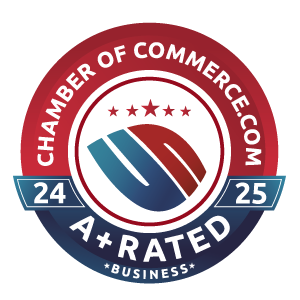
A VA loan is perhaps the most powerful and flexible lending option on the market today.
Rather than issue loans, the VA instead pledges to repay about a quarter of every loan it guarantees in the unlikely event the borrower defaults. That guarantee gives VA-approved lenders greater protection when lending to military borrowers and often leads to highly competitive rates and terms for qualified veterans.
Benefits of VA Loan
Far and away, the most significant benefit of a VA loan is the borrower’s ability to purchase with no money down. Apart from the government’s UDSA’s Rural Development home loan and Fannie Mae’s Home Path, it’s all but impossible to find a lending option today that provides borrowers with 100 percent financing.
VA loans also come with less stringent underwriting standards and requirements than conventional loans. In fact, about 80 percent of VA borrowers could not have qualified for a conventional loan. These loans also come with no private mortgage insurance (PMI), a monthly expense that conventional borrowers are required to pay unless they put down at least 20 percent of the loan amount.
Self Employed Mortgage Pros and Cons
- Down payment as low as 0%.
- Competitive interest rates that are routinely lower than conventional rates
- No prepayment penalties
- Higher allowable debt-to-income ratios than for many other loans
- Streamlined refinancing loans that require no additional underwriting
Frequently Asked Questions About VA Loans
What is a VA loan and who is eligible?
A VA loan is a mortgage loan guaranteed by the U.S. Department of Veterans Affairs (VA). It’s a key benefit that helps eligible service members, Veterans, and surviving spouses buy, build, or refinance a home. To be eligible, you must meet specific service requirements based on your service period and length. The first step to confirming your eligibility is to obtain your Certificate of Eligibility (COE), which your lender can often help you get.
Do VA loans require a down payment?
This is one of the biggest advantages of a VA loan: no down payment is required for most borrowers, as long as the sales price doesn’t exceed the home’s appraised value. This can save you tens of thousands of dollars in upfront costs compared to conventional loans, which typically require a down payment of 3% or more. This zero-down benefit is a game-changer for many who want to buy a home.
Do I have to pay Private Mortgage Insurance (PMI) on a VA loan?
No, VA loans do not require Private Mortgage Insurance (PMI), regardless of your down payment amount. This is another major benefit that sets VA loans apart. On conventional loans, PMI is typically required if you put down less than 20%, adding a significant cost to your monthly payment. With a VA loan, you avoid this monthly expense, leading to more affordable payments.
What is the VA Funding Fee and who has to pay it?
The VA Funding Fee is a one-time, mandatory fee paid directly to the VA. This fee helps offset the cost of the VA loan program to U.S. taxpayers. The amount varies based on your service type, whether it’s your first time using the benefit, and your down payment amount. You are exempt from paying the funding fee if you receive VA disability compensation for a service-related disability, are a surviving spouse of a Veteran who died in service or from a service-related disability or receive a Purple Heart. The fee can be paid at closing or financed into the loan.
What credit score is needed for a VA loan?
The VA itself does not set a minimum credit score requirement for a VA loan. However, individual mortgage lenders that originate VA loans do have their own credit score requirements, known as “lender overlays.” Most lenders typically look for a minimum FICO score of 620 or higher. A higher credit score can also help you secure a better interest rate.
How many times can I use my VA loan benefit?
You can use your VA home loan benefit multiple times throughout your lifetime. Your eligibility is tied to your VA entitlement, which can be restored once you pay off your loan or sell the property. In some cases, you may even be able to have two VA loans at the same time if you have remaining entitlement.
Can a VA loan be used to purchase a second home or investment property?
No, a VA loan is strictly for the purchase of a primary residence. You are required to occupy the property as your home. You cannot use a VA loan to purchase a vacation home, a rental property, or any other type of investment property.
Are there closing costs associated with a VA loan?
Yes, like other mortgage types, VA loans have closing costs. These costs include standard fees for things like appraisal, title insurance, and lender’s fees. However, the VA limits what lenders can charge and allows sellers to pay for all your closing costs and up to 4% in concessions. The VA Funding Fee is also a closing cost specific to this loan.
What is the VA appraisal and is it required?
Yes, a VA appraisal is a mandatory requirement. A VA-approved appraiser will assess the property’s market value and ensure it meets the VA’s Minimum Property Requirements (MPRs). MPRs are standards for the home’s safety, sanitation, and structural soundness. This appraisal is a critical step in the process, as it protects both the Veteran and the lender.
Can I have a co-borrower on my VA loan?
Yes, you can have a co-borrower. The co-borrower can be a spouse or another eligible Veteran. However, if you are co-borrowing with a non-Veteran, the VA will only guarantee the Veteran’s portion of the loan, which may impact the amount the lender is willing to lend. This can make the process more complex, so it’s best to discuss your specific situation with a VA loan specialist.



